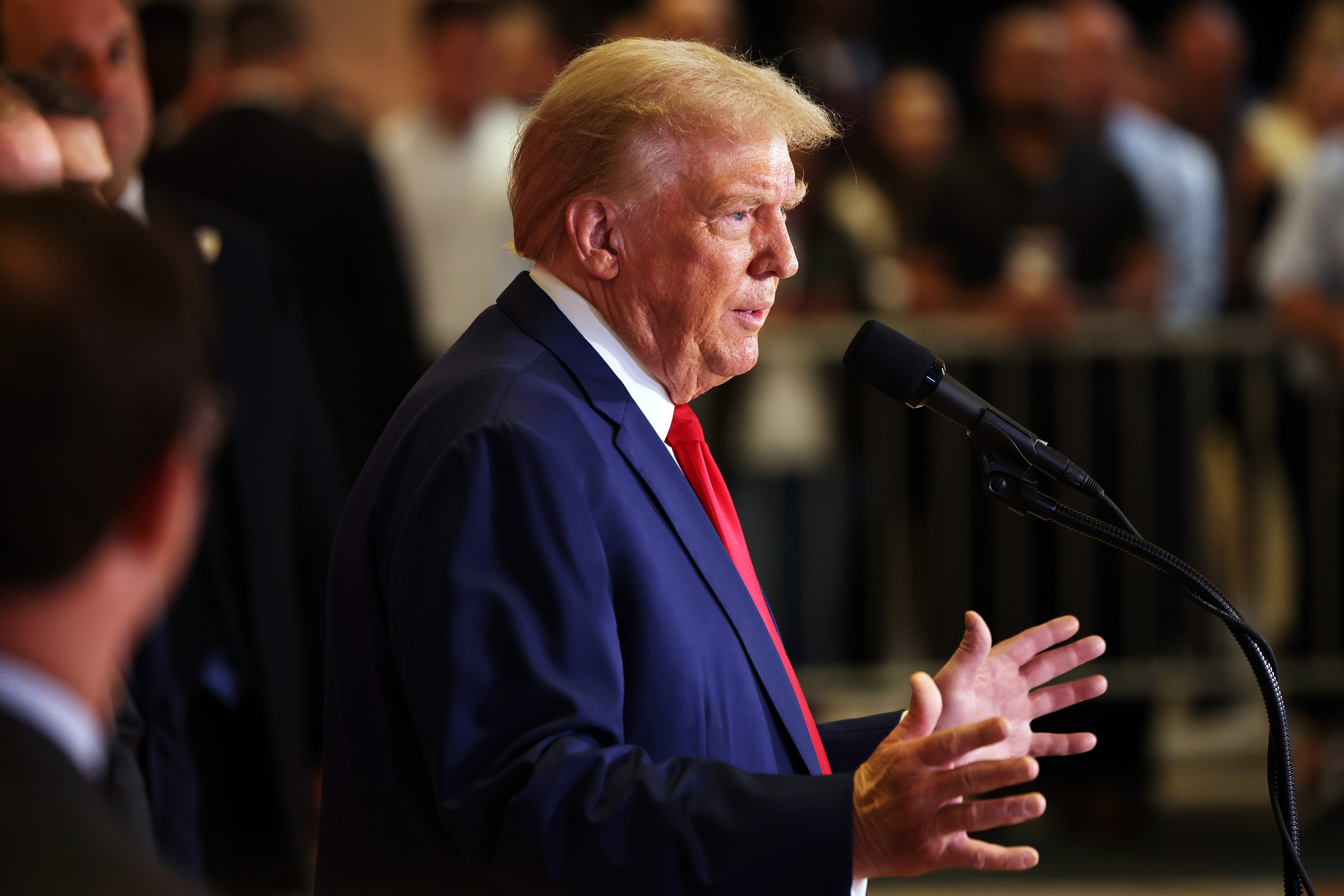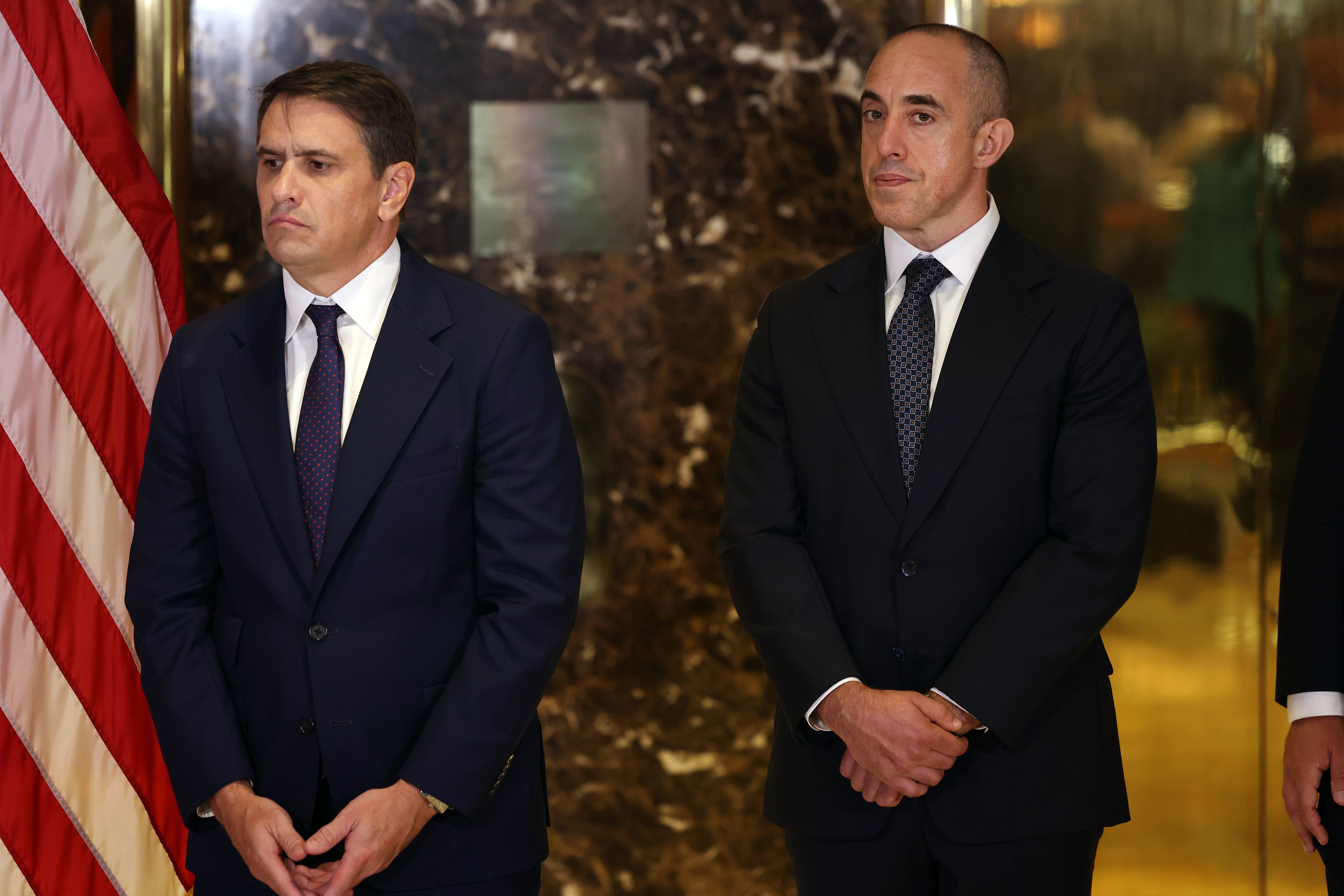Donald Trump will not be sentenced in his hush money case until after the presidential election in November, as the judge overseeing the criminal case against the former president moved his imminent court date to avoid the appearance of political interference in the crucial weeks before Election Day.
Trump, the first president to be convicted of a crime, will not face Justice Juan Merchan in a Manhattan courtroom until November 26, nearly six months after a unanimous jury found him guilty on 34 felony counts of falsifying business records as part of a scheme to corruptly influence the 2016 election.
Judge Merchan’s decision on Friday marks a significant victory for the Republican presidential nominee, who is also pushing the judge to toss his conviction as he campaigns on a narrative of political persecution and retribution against a justice system he accuses of conspiring against him.
The judge had already delayed Trump’s sentencing to September 18 after initially scheduling Trump’s date in court for July 11.
He agreed to Trump’s first request to push back the hearing while he considered his arguments to toss the jury’s verdict in the wake of the Supreme Court’s “immunity” decision, which determined that presidents can be shielded from some criminal prosecution for official acts carried out while in office.
The judge has also paused a decision on that motion, which was expected this month, until November 12.
A sentencing hearing — if one is “necessary” after Merchan’s decision on Trump’s immunity claims — will follow on November 26. Election Day is November 5.

In their request to delay his sentencing until after November’s election, Trump’s attorneys accused the court and prosecutors of “election interference” and argued that the timing for the September 18 court date “illustrates just how unreasonable it is to have the potential for only a single day” between the immunity decision and what they called an “unwarranted sentencing.”
Attorneys Todd Blanche and Emil Bove claimed “there is no valid countervailing reason for the Court to keep the current sentencing date on the calendar” and “no basis for continuing to rush.”
In his four-page order on Friday, Judge Merchan said the arguments from Trump’s attorneys reintroduce a “litany of perceived and unsubstantiated grievances from previous filings that do not merit this Court’s attention and will not be addressed.”
But he added that there were “several reasons” why he agreed to postpone the sentencing hearing.
“This matter is one that stands alone, in a unique place in this Nation’s history, and this Court has presided over it since its inception — from arraignment to jury verdict and a plenitude of motions and other matters in-between,” Merchan wrote.
“Were this Court to decide, after careful consideration of the Supreme Court’s [decision], that this case should proceed, it will be faced with one of the most critical and difficult decisions a trial court judge faces — the sentencing of a defendant found guilty of crimes by a unanimous jury of his peers,” he added.

The jury in Trump’s hush money trial “served diligently,” and the verdict they reached “must be respected and addressed in a manner that is not diluted by the enormity of the upcoming presidential election,” according to Merchan.
“Unfortunately, we are now at a place in time that is fraught with complexities rendering the requirements of a sentencing hearing, should one be necessary, difficult to execute,” he said.
“This is not a decision this Court makes lightly,” Merchan concluded, “but it is the decision which in this Court’s view, best advances the interests of justice.”
Trump was convicted on May 30 after 16 days of witness testimony and two days of jury deliberations.
A jury found Trump guilty on all 34 counts of falsifying business records as part of an effort to conceal reimbursements to his then-attorney Michael Cohen, who bought the silence of adult film star Stormy Daniels to prevent her from going public with her story about having sex with Trump in 2006.
Prosecutors argued that Trump’s efforts sought to corruptly influence the outcome of the 2016 by hiding politically damaging stories about then-candidate Trump in the weeks before that year’s presidential election.
A federal judge has seperately shot down Trump’s repeated attempts to move the case to federal court, pointing to his judgment that the case has nothing to do with provisions of “official” presidential acts protected by an immmunity defense.
Critics have argued that that the Supreme Court’s decision effectively granted Trump a “pretext” of immunity in this case, and “is the only reason the option to delay sentencing was even considered,” according to Norm Eisen and Michael Podhorzer with the Defend Democracy Project.
“Trump wanted to delay his sentencing for one reason only: to avoid accountability for his crimes against the American people,” they added.
A statement from the office of Manhattan District Attorney Alvin Bragg — who brought the case against the former president — said it “stands ready for sentencing on the new date set by the court.”
On a post on his Truth Social raging aginst the district attorney and his Democratic rival Kamala Harris, Trump claimed he did “NOTHING WRONG” and that the case should be “rightfully terminated.”

